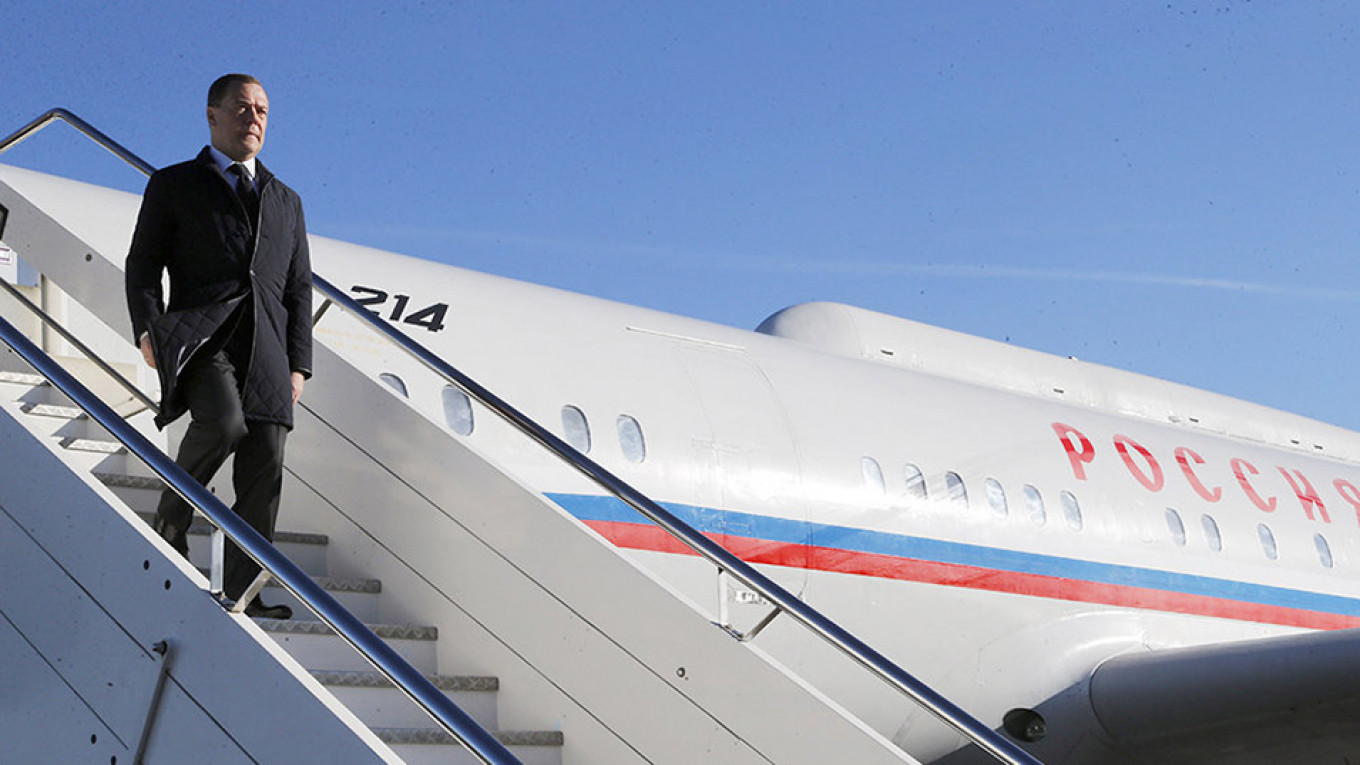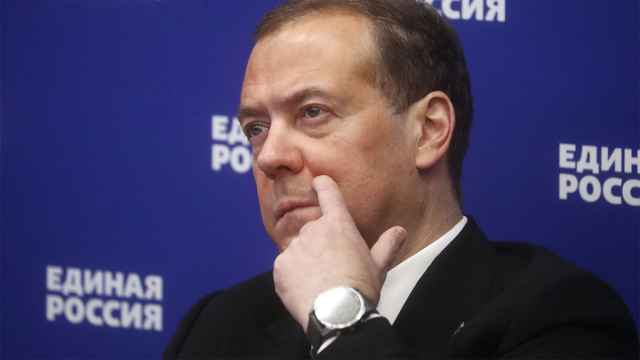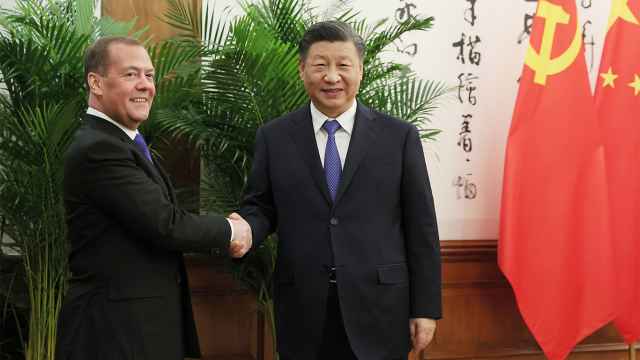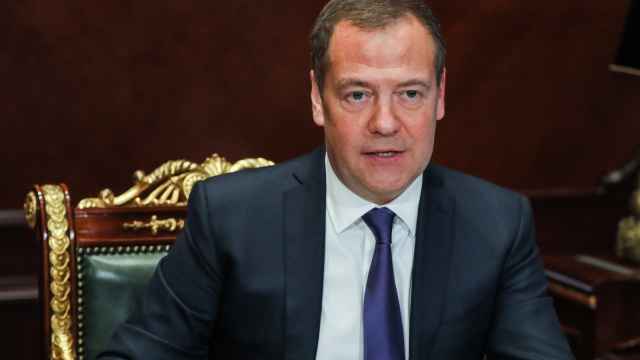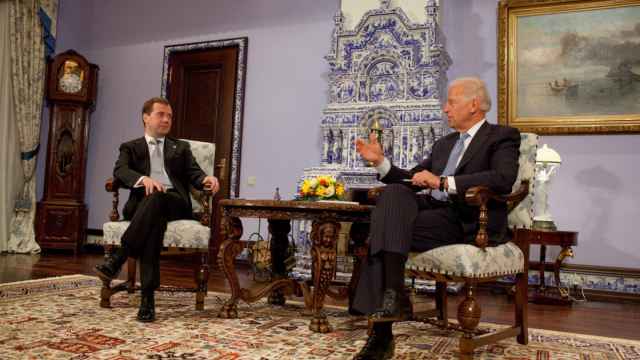Russian Prime Minister Dmitry Medvedev lambasted the Trump administration on Thursday for trying to create a "toxic atmosphere" around Cuba, during a two-day trip to the island demonstrating Russia's support for its Communist government.
The former Soviet Union was Cuba's main backer for decades and Moscow has sought to renew its commercial, military and political ties with the island in recent years. The effort is part of Russia's broader strategy to expand its presence in Latin America as a counterweight to China and the United States.
While Russia's support for Cuba is insignificant compared to the role the Soviet Union once played, it is still welcome as the island's economy is suffering from a tightening of the decades-old U.S. trade embargo and a steep decline in Venezuelan aid.
Medvedev's visit — the highest profile Russian tour since that of President Vladimir Putin in 2014 — is also symbolically important, showing Cuba has still has powerful allies that will help it resist U.S. pressure.
"(The U.S.) desire to create a toxic atmosphere around cooperation with the island, to scare off investors and create an energetic blockade is obvious," Medvedev told reporters after holding official talks with Cuban President Miguel Diaz-Canel and agreeing to strengthen strategic cooperation.
"But Cuba's experience resisting the blockade for nearly 60 years shows that this policy will fail."
For Russia, the visit could also be important to shore up Cuban support for their mutual ally, Venezuelan President Nicolas Maduro, some analysts said.
Venezuela has become one of Russia's top proxy battles with the Trump administration, which like most western nations no longer recognize Maduro as its legitimate leader, they said. Moscow also has commercial interests there.
"They are most concerned about the Venezuelan piece of the jigsaw and, so far, want to show Cuba that they are willing to back their efforts to ensure Maduro's survival," said Paul Hare, a former British ambassador to Cuba who lectures at Boston University's Pardee School of Global Studies.
"They need to show Iran and North Korea also that the United States' coercive diplomacy will not prevail."
Russia has the potential to help Cuba out of its current fuel crisis, which Havana blames on U.S. sanctions on energy shipments to the island. It remains unclear though whether Moscow is willing and has the economic firepower to do so.
"Russia is wary of becoming a bankroller again so they will only offer enough to prop Cuba up as long as it is politically useful," said Hare.
Medvedev and Diaz-Canel signed a series of modest commercial deals on Thursday in the infrastructure, medical and industrial sectors, while the latter confirmed he would travel to meet with Putin at the end of October in Moscow, a month after Maduro.
Relations rebooted
Throughout the Cold War, Moscow propped up Fidel Castro's revolutionary government, providing it with billions of dollars worth of cheap grain, machinery and other goods. Those subsidies disappeared with the 1991 collapse of the Soviet Union and trade plunged.
Relations got a boost once more in 2014 when Russia forgave 90% of Cuba's $35 billion Soviet-era debt and started providing export financing to Russian companies looking to sell to the cash-strapped island.
That has become increasingly important as Western commercial financing is drying up due to growing U.S. hostility.
Russian companies have signed various modest, multi-million dollar deals with Cuba in recent years to upgrade its rickety industrial sector and infrastructure.
Medvedev and Diaz-Canel on Thursday signed deals for Russia to finance projects to maintain the airplanes in Cuba's fleet produced by Russia and the upgrade of a metallurgic factory. Those deals are worth around $23 million and $37 million, according to the Russian Export Center.
Medvedev and Diaz-Canel signed other deals on upgrading Cuba's railways, cooperating more in science and technology and creating an irradiation center on the island. The countries did not release details on these agreements.
Russian exports to Cuba more than doubled in 2017 to $414 million and rose to $440 million last year, according to official Cuban data. While that remains less than a third of Spanish, Chinese or Venezuelan exports to Cuba, it looks set to continue rising.
Russian exports include hundreds of cars and minibusses as well as dozens of locomotives that have helped Cuba battle a severe shortage of public transport.
"For Cuba, the symbolism is that the U.S. strategy of economic strangulation will fail because Cuba can turn elsewhere for support — just as it did during the Cold War," said William LeoGrande, a professor of government at American University.
U.S. sanctions are therefore achieving the opposite of Washington's foreign policy goals, pushing Cuba into the arms of its old allies, said U.S. politicians who support engagement.
"I wish we were signing agreements with the Cubans and not the Russian," Massachusetts Congressman James McGovern told reporters on Thursday during a visit to Cuba as the head of a delegation of business people.
"The United States needs to be engaged in the world. Where and when we are not engaged, China and Russia will be."
Later on Thursday Medvedev visited Havana's Capitol building, the golden dome of which has been restored with Russian financing.
A Message from The Moscow Times:
Dear readers,
We are facing unprecedented challenges. Russia's Prosecutor General's Office has designated The Moscow Times as an "undesirable" organization, criminalizing our work and putting our staff at risk of prosecution. This follows our earlier unjust labeling as a "foreign agent."
These actions are direct attempts to silence independent journalism in Russia. The authorities claim our work "discredits the decisions of the Russian leadership." We see things differently: we strive to provide accurate, unbiased reporting on Russia.
We, the journalists of The Moscow Times, refuse to be silenced. But to continue our work, we need your help.
Your support, no matter how small, makes a world of difference. If you can, please support us monthly starting from just $2. It's quick to set up, and every contribution makes a significant impact.
By supporting The Moscow Times, you're defending open, independent journalism in the face of repression. Thank you for standing with us.
Remind me later.



